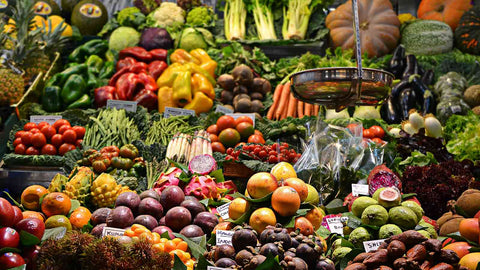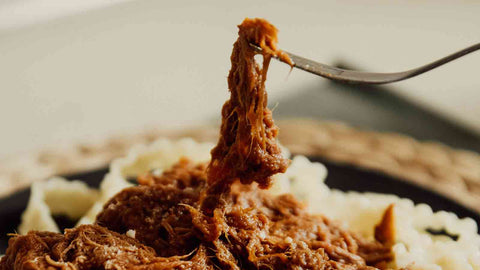It's a happy coincidence that outdoor grilling season and the availability of fresh, colorful vegetables are at the same time. As you peruse farmer's markets this summer, consider choosing good vegetables to grill as condiments, side dishes, or even as a main course.
The Basics of Grilling Vegetables
Most veggies can be grilled, though some lend themselves more easily to grilling than others. To maximize flavor, do the following:
- Use a chef knife to cut, trim and seed vegetables into large portions. The larger the surface area, the more exposure to the grill, increasing flavor.
- The biggest challenge when grilling anything is that it will slip through the grill into the coals or flames. Good vegetables to grill tend to be on the larger side for this reason. While some people use foil to keep veggies from falling, this prevents contact with the grill and the smoke, resulting in less flavor.
You have a couple of options: the first is a BBQ grill pan with holes to allow air circulation. This option has the advantage of helping to keep your grill clean. Another option is to put the veggies on wooden or metal skewers.
- Season veggies before and during cooking. High-quality olive oil is a must, as is salt. Many grill chefs also squeeze fresh lemon juice on the vegetables right after they've been taken off the grill. The lemon slices also add color to vegetable platters.
Grilling Tips
While grilling can be very straightforward, there are a few things you can do to ensure that you get the best flavor from your vegetables.

Asparagus
Choose very fresh asparagus (tips should be firm) and trim off the woody ends. For more flavor, make a marinade of balsamic vinegar, soy sauce, olive oil, and garlic (hint, use a garlic press to reduce prep time) and let the asparagus sit in it for about an hour before cooking. Cook until tender, turning occasionally, for about four to six minutes.
Zucchini and Yellow Squash
Cut lengthwise into 1/2 slices to maximize grilling area. Use a silicone pastry and basting brush to apply olive oil, sprinkle with salt, and grill for about three to four minutes on each side.
Onions
Yes, onions are good vegetables to grill! Grilled onions are great on burgers and brats while also adding a lot of flavor to any other veggies you prepare. Use medium-sized onions and cut into quarters. Brush with olive oil and grill for seven to eight minutes, turning frequently.
Bell Peppers
Core and remove seeds. Slice into large strips and brush with olive oil. Grill for five to seven minutes.
Artichokes
While artichokes are trickier to grill than other vegetables, they are still good vegetables to grill because they are so delicious. Trim off the top of the artichoke, the toughest outer leaves, and the tips of those that remain on the artichoke. To keep from turning brown, apply lemon juice while you work.
Rinse and soak the artichoke to clean thoroughly before steaming for 20 minutes or until tender. Slice in half, take out the choke, and baste with olive oil or melted butter for five to 10 minutes, depending on size.
Tomatoes
Many expert grillers suggest choosing small tomatoes that are still on the vine. Don't separate them: You want them connected and clustered so that they don't fall through the grill. Don't cut them, either. Cook for four to six minutes.
Finishing Touches
Arrange your grilled veggies on a platter and drizzle with more olive oil and lemon juice. Sprinkle with salt and serve. Another option is to prepare a fresh vinaigrette just before serving, which you can use to make a grilled vegetable salad.
Many good vegetables to grill also lend themselves well to dips: Bring the veggies to room temperature and serve with a fresh ranch dip or a bowl of hummus.





